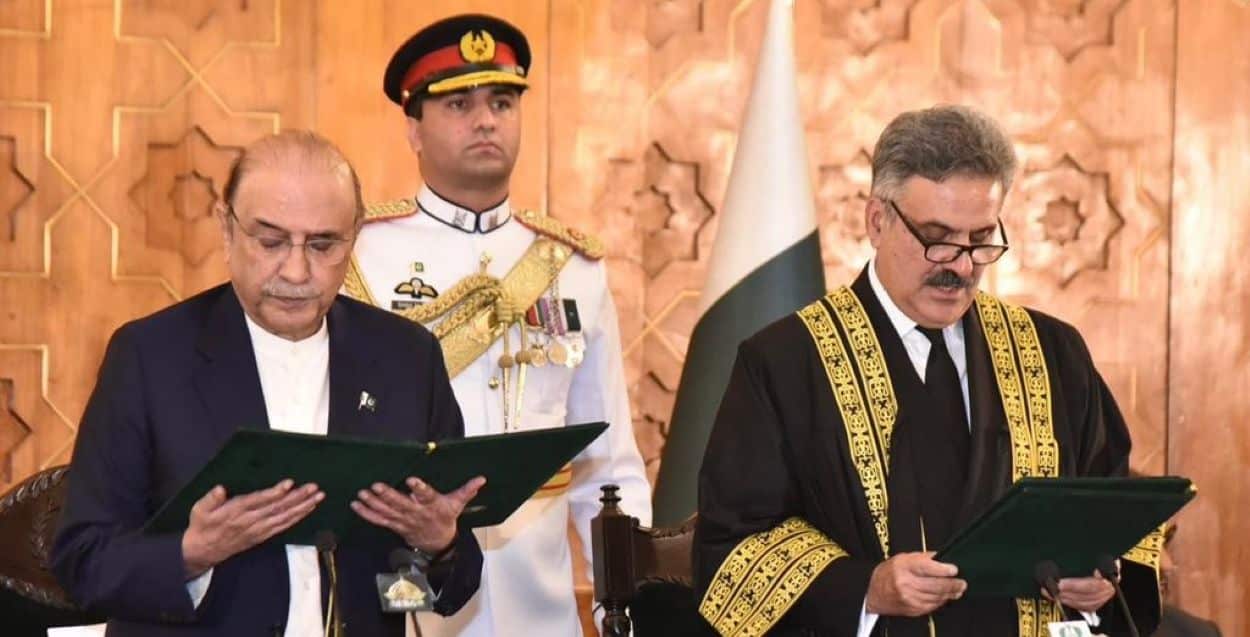On Saturday, Justice Yahya Afridi took the oath as the 30th Chief Justice of Pakistan. President Asif Zardari administered the oath during a ceremony at Aiwan-e-Sadr in Islamabad, attended by Prime Minister Shehbaz Sharif, Chief of Army Staff Asim Munir, and all apex court judges.
Justice Afridi’s tenure in this top judicial position will last three years, following the enactment of the 26th constitutional amendment.
The ceremony started with a recitation of the Holy Quran, followed by reading the official notification of Justice Afridi’s appointment. Ali Amin Gandapur, the Chief Minister of Khyber Pakhtunkhwa, also attended the event.
Justice Yahya Afridi, born on January 23, 1965, in Dera Ismail Khan, comes from the Adam Khel section of the Afridi tribe. He pursued his early education at Aitchison College, Lahore, and obtained his Bachelor of Arts in Political Science and Economics from Government College Lahore. He earned his Master of Arts in Economics from Punjab University, Lahore.
After receiving a Commonwealth Scholarship, he completed his LL.M. at Jesus College, University of Cambridge. He participated in a scholarship program for Young Commonwealth Lawyers at the Institute of Legal Studies in London.
He interned at Fox & Gibbons, Solicitors, in London before returning to Pakistan to join Orr, Dignam & Co. in Karachi as an Associate. Later, he began his private practice in Peshawar and taught International Law, Labour Law, and Administrative Law at Khyber Law College, University of Peshawar.
Justice Afridi enrolled as an advocate of the High Court in 1990 and of the Supreme Court in 2004. He served as an Assistant Advocate General for Khyber Pakhtunkhwa and as a Federal Counsel for the Government of Pakistan.
In 2010, authorities appointed him as an Additional Judge of the Peshawar High Court, and he received confirmation as a Judge there in March 2012. Justice Afridi made history as the first judge from the Federally Administered Tribal Area (FATA) to become the Chief Justice of the Peshawar High Court on December 30, 2016. He continued in this role until his elevation to the Supreme Court of Pakistan on June 28, 2018.






